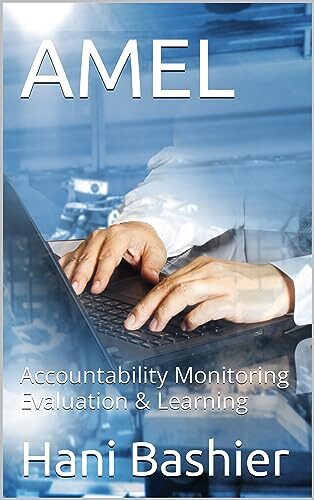Evidence-Based MEAL: A Comprehensive Guide to Enhancing Program Impact and Learning
Evidence-based monitoring, evaluation, accountability, and learning (MEAL) is an approach that emphasizes the use of empirical evidence, rigorous methods, and critical thinking to inform program planning, decision-making, and improvement. This guide will provide an in-depth exploration of evidence-based MEAL, its benefits, and how organizations can effectively implement and enhance these practices. The guide will cover the following topics:
- Understanding evidence-based MEAL
- Principles of evidence-based MEAL
- Implementing evidence-based MEAL in an organization
- Strengthening the quality and use of evidence in MEAL
- Evaluating the impact of evidence-based MEAL
1. Understanding Evidence-Based MEAL
Evidence-based MEAL is a management approach that seeks to improve the effectiveness, efficiency, and impact of programs and projects by grounding decision-making, learning, and adaptation in high-quality, credible, and relevant evidence. Evidence-based MEAL comprises four interrelated components:
- Monitoring: The ongoing, systematic tracking of program progress and performance, using evidence-based indicators and targets.
- Evaluation: The periodic, in-depth assessment of a program’s overall effectiveness, efficiency, relevance, and sustainability, drawing on a range of evidence sources and evaluation methods.
- Accountability: The responsibility of organizations to demonstrate that they have used resources effectively and achieved the intended results, as well as their commitment to involve stakeholders in program decision-making and learning, based on evidence and feedback.
- Learning: The process of using monitoring and evaluation findings, as well as other evidence, to inform program planning, decision-making, and adaptation, and to generate knowledge and insights that can be shared and applied across the organization and beyond.
2. Principles of Evidence-Based MEAL
Evidence-based MEAL is underpinned by several key principles that guide its implementation and help to ensure that it is effective, rigorous, and useful. These principles include:
Rigor and Credibility
Rigor and credibility refer to the quality, trustworthiness, and validity of the evidence that is generated through monitoring, evaluation, and learning activities. Rigorous and credible evidence is characterized by:
- Methodological rigor: The use of appropriate, robust, and transparent data collection and analysis methods that minimize biases, errors, and uncertainties.
- Triangulation: The integration and comparison of multiple sources of evidence, perspectives, and methods to enhance the comprehensiveness and validity of findings.
- Reliability and validity: The consistency and accuracy of the evidence, as well as its ability to measure what it is intended to measure and to generalize to other contexts or populations.
Relevance and Utility
Relevance and utility refer to the extent to which the evidence generated through monitoring, evaluation, and learning activities is meaningful, timely, and actionable for program stakeholders. Relevant and useful evidence is characterized by:
- Alignment with program objectives and stakeholders’ needs: The evidence should address the key questions, concerns, and priorities of program stakeholders, and should be closely related to the program’s objectives, strategies, and outcomes.
- Timeliness: The evidence should be available when it is needed, to inform decision-making, learning, and adaptation in a timely manner.
- Accessibility and understandability: The evidence should be presented in a clear, concise, and accessible format, using appropriate language, visualizations, and summaries, to ensure that it can be easily understood and used by program stakeholders.
Ethical Considerations
Ethical considerations are integral to evidence-based MEAL, as they help to ensure that monitoring, evaluation, and learning activities are conducted in a respectful, responsible, and transparent manner that safeguards the rights, dignity, and well-being of program participants, beneficiaries, and other stakeholders. Ethical considerations in evidence-based MEAL include:
- Informed consent: Obtaining the voluntary, informed, and ongoing consent of program participants, beneficiaries, and other stakeholders for their involvement in data collection, analysis, and reporting activities.
- Privacy and confidentiality: Protecting the personal information and privacy of program stakeholders, by ensuring that data is collected, stored, and shared in a secure and confidential manner, and by anonymizing or aggregating data to minimize the risk of identification.
- Non-maleficence: Minimizing any potential harm or discomfort that may be caused by monitoring, evaluation, and learning activities, by carefully considering the risks, benefits, and consequences of these activities, and by taking appropriate steps to mitigate potential harm.
Adaptation and Learning
Adaptation and learning are core principles of evidence-based MEAL, as they enable organizations to use evidence to inform program planning, decision-making, and improvement, and to generate and share knowledge and insights across the organization and beyond. Adaptation and learning in evidence-based MEAL involve:
- Reflective practice: Encouraging staff and stakeholders to critically reflect on program experiences, challenges, and successes, and to identify opportunities for learning and growth based on evidence.
- Knowledge management: Collecting, organizing, and sharing monitoring andevaluation findings, lessons learned, and best practices within and across the organization, in order to facilitate learning, collaboration, and innovation.
- Continuous improvement: Using evidence to iteratively refine program strategies, processes, and activities, in order to enhance program effectiveness, efficiency, and impact over time.
3. Implementing Evidence-Based MEAL in an Organization
Implementing evidence-based MEAL in an organization involves several key steps, which include:
Establishing a MEAL Framework and System
A MEAL framework and system provide the foundation for evidence-based MEAL, by defining the program’s objectives, indicators, targets, and data sources, and by outlining the processes, roles, and responsibilities for monitoring, evaluation, accountability, and learning. Key elements of a MEAL framework and system include:
- A results framework or logic model, which visually represents the program’s objectives, outcomes, and outputs, as well as the causal pathways and assumptions that underpin them.
- A set of key performance indicators (KPIs) and targets, which are used to track program progress and performance over time, and which are based on evidence and aligned with the program’s objectives and outcomes.
- A monitoring and evaluation (M&E) plan, which specifies the data collection, analysis, and reporting methods, tools, and timelines for each indicator, as well as the roles and responsibilities of staff and stakeholders in the M&E process.
- A learning and adaptation plan, which outlines the processes, platforms, and opportunities for reflection, learning, and adaptation within the organization, and the mechanisms for sharing and applying knowledge and insights across the organization and beyond.
Building MEAL Capacity and Culture
Building MEAL capacity and culture involves strengthening the skills, knowledge, attitudes, and behaviors of staff and stakeholders, in order to enhance their ability to engage in and contribute to evidence-based MEAL. Key strategies for building MEAL capacity and culture include:
- Training and professional development: Providing staff and stakeholders with regular, targeted training and professional development opportunities, in order to build their technical and analytical skills, as well as their understanding of evidence-based MEAL principles and practices.
- Mentoring and coaching: Pairing staff and stakeholders with experienced MEAL practitioners, who can provide ongoing guidance, support, and feedback, and who can help to foster a culture of learning, reflection, and critical thinking within the organization.
- Incentives and recognition: Encouraging and rewarding staff and stakeholders for their contributions to evidence-based MEAL, by recognizing their efforts and achievements, and by providing them with opportunities for career advancement, professional growth, and networking.
Strengthening Partnerships and Collaboration
Strengthening partnerships and collaboration involves working closely with other organizations, networks, and communities, in order to leverage their expertise, resources, and perspectives, and to enhance the quality, relevance, and impact of evidence-based MEAL. Key strategies for strengthening partnerships and collaboration include:
- Coordination and harmonization: Coordinating and harmonizing MEAL activities and approaches with those of other organizations and networks, in order to minimize duplication, reduce the burden on program stakeholders, and promote the sharing and use of evidence and learning across the sector.
- Joint learning and innovation: Engaging in joint learning and innovation initiatives with other organizations and networks, in order to generate new knowledge, insights, and solutions, and to foster a culture of continuous improvement and shared learning within the sector.
- Advocacy and influence: Using evidence and learning to advocate for and influence policy, practice, and funding decisions, both within the organization and at the national, regional, and global levels, in order to promote the adoption and scaling of evidence-based MEAL approaches and innovations.
4. Strengthening the Quality and Use of Evidence in MEAL
Strengthening the quality and use of evidence in MEAL involves enhancing the rigor, credibility, relevance, and utility of the evidence that is generated through monitoring, evaluation, and learning activities. Key strategies for strengthening the quality and use of evidence in MEAL include:
Enhancing Data Quality and Management
Enhancing data quality and management involves improving the accuracy, reliability, and completeness of the data that is collected, analyzed, and reported through MEAL activities, as well as the processes and systems for managing, storing, and sharing this data. Key strategies for enhancing data quality and management include:
- Data quality assurance: Implementing data quality assurance mechanisms, such as data verification, validation, and auditing, in order to identify and address data quality issues, and to ensure the accuracy, reliability, and completeness of the data.
- Data management systems: Developing and maintaining robust, user-friendly data management systems, which enable staff and stakeholders to securely store, access, and analyze data, and which facilitate the integration, aggregation, and sharing of data across the organization and beyond.
- Data visualization and reporting: Using data visualization and reporting tools, such as dashboards, maps, and infographics, to present data in a clear, concise, and accessible format, and to enhance the understandability and usability of the








